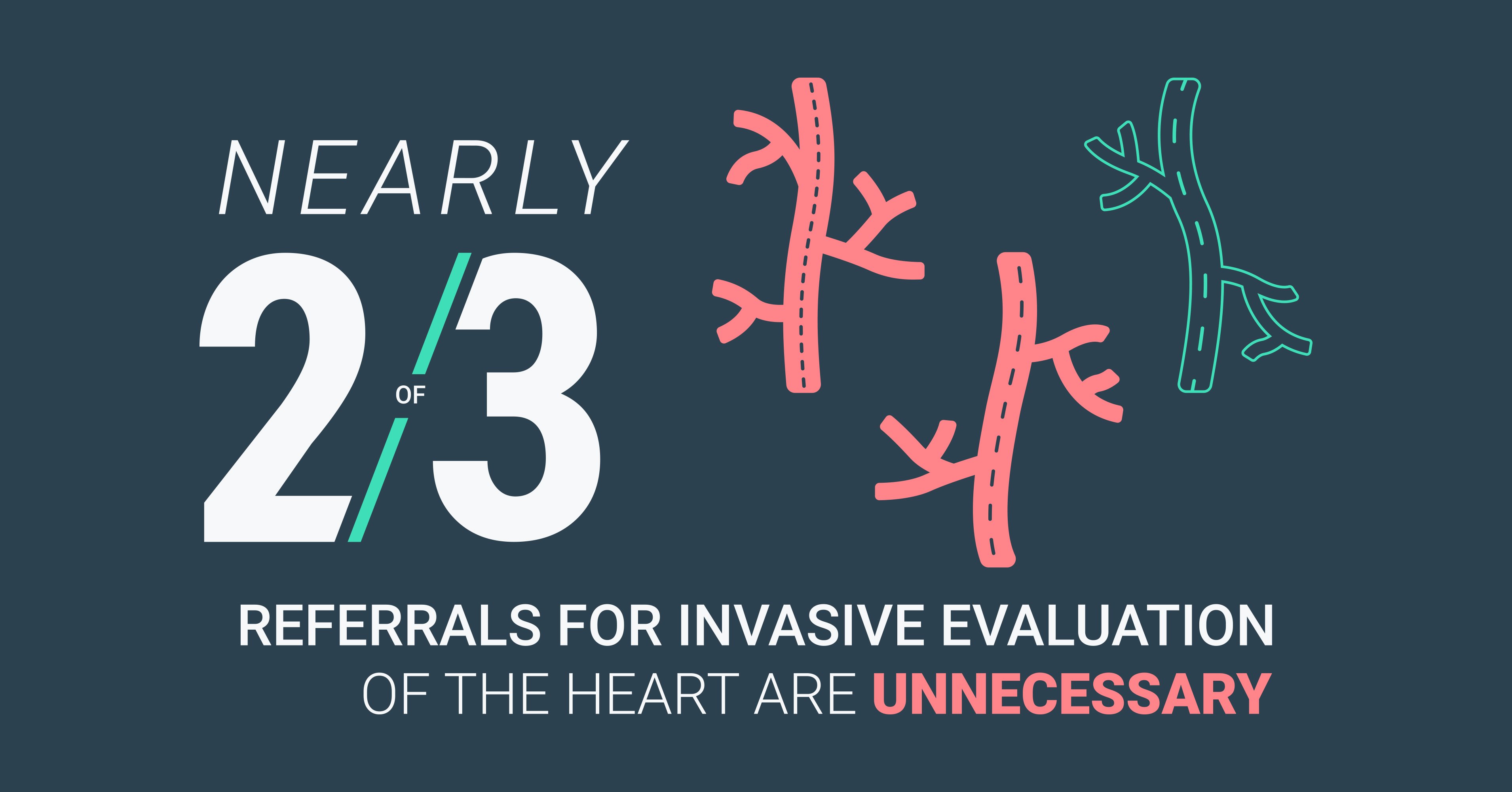The Recipe to a Healthy Heart:Your Guide to Preventing Heart Disease
Sure, the taste of food is important, but do you know how your diet impacts your heart? Many foods contain hidden ingredients that negatively impact...
4 min read
 James K. Min, MD, FACC, FESC, MSCCT, Founder & CEO of Cleerly
:
April 6, 2022
James K. Min, MD, FACC, FESC, MSCCT, Founder & CEO of Cleerly
:
April 6, 2022

Cleerly is excited to have released our vision statement calling for a new approach to cardiovascular care. It's an important topic - not just for Cleerly, but for the healthcare industry and all the patients impacted by heart disease - and we're going to be talking about it a lot over the next few months.
Offering CCTA scanning as a first line of defense provides more accurate diagnoses and enables a personalized approach to heart health - all while greatly reducing the need for invasive procedures.
Heart disease is the No. 1 cause of death in the United States. We lose about 700,000 Americans to heart disease every year. That's roughly the population of Washington, D.C. – or, put another way, it's the equivalent of nine fully loaded 737 airplanes crashing every day and killing everyone on board.
If nine passenger planes were crashing every day, there would be national outrage. We'd have public and private inquiries into what was going wrong and countless initiatives underway to fix the problem and make our airplanes safe.
Why aren't we doing the same for heart diseases? That's why Cleerly is calling for a new approach to cardiovascular care. In a previous post, we talked about one of our motivations for this work: Treating the symptoms of heart disease and not its underlying cause for preventing heart attacks.
Here, we're going to address another important reason why the current standard of care isn't working. Most referrals to the catheterization laboratory and the cardiologist are actually unnecessary, leaving patients and payers with hefty bills but no better insight into whether they are truly at high risk of a heart attack.
Here's what we mean:
Continued use of expensive but ineffective procedures contributes to significant spending – and it's only going to get worse. The United States spent $315 billion on cardiovascular care in 2010, and that figure is expected to nearly triple to $918 billion by 2030. By then, more than 1 in 4 Americans are expected to be at risk of cardiovascular disease, stroke, or heart attack. Simply put, the status quo is no longer a viable option.
Our previous post outlined Cleerly's vision for a new standard of cardiovascular care. This approach leverages coronary computed tomography angiography (CCTA) screening, coupled with actionable insights and an embrace of precision medicine to develop care plans based on a patient's individual level of heart attack risk.
A central component of this approach is empowering primary care and family health physicians. With comprehensive coronary analysis, reporting, decision support, and educational resources more readily available at the point of care, they can play a greater role in managing their patients' cardiovascular health.
Instead of referring nearly all heart health matters to cardiology, and subjecting patients to procedures they don't need, primary care and family health physicians can refer patients to imaging centers for a simple scan. Then, based on the results of the scan, they can work with patients to develop longitudinal and proactive treatment plans. In many cases, that plan can focus on lifestyle interventions or statin prescriptions and consider invasive procedures only as a last resort. And all the while, patients feel more comfortable having heart health conversations with a physician they already know and trust.
As we've said, this represents a seismic shift in cardiovascular care. However, clinical evidence suggests that a new standard of care would lead to better patient outcomes and reduced costs.
As one paper put it, the growing body of evidence shows that CCTA is a useful "gatekeeper" for the cath lab, ensuring that the only patients who receive an invasive procedure are those who truly require one.
Cleerly recognizes that challenging the status quo in healthcare is never easy. Not only does it take time to change people's minds, but it also requires evidence. That's why our push for a new standard of cardiovascular care is based on nearly two decades of large-scale multi-center clinical trials. Through our work at Cleerly Labs, we've been able to reduce referrals for ICA procedures by 77% compared to expert clinical readers.
Heart disease is our largest public health epidemic. For too long, our approach to diagnosis and treatment has relied on expensive, ineffective, and unnecessary invasive procedures. The evidence increasingly shows that it's time for a new standard of cardiovascular care – and Cleerly is ready to lead the way.
References:
Are you ready for the future of cardiology care?
Download our report to learn about our approach to heart health.

Sure, the taste of food is important, but do you know how your diet impacts your heart? Many foods contain hidden ingredients that negatively impact...

As we reach the end of 2023 and yet another remarkable year at Cleerly, it’s a great opportunity to reflect on all we’ve accomplished and begin...

Cleerly has had a busy few months – attending conferences, panel sessions, and winning awards as we all work together to achieve our mission of a...

Cleerly is excited to have released our vision statement calling for a new approach to cardiovascular care. It's an important topic - not just for...

Heart plaques, which are the build-up of substances like cholesterol and fat in the heart’s arteries, can increase your risk of heart attack. A...

Findings from Cleerly's groundbreaking echo the recent American College of Cardiology guidelines on the use of CCTA for non-invasive heart disease...